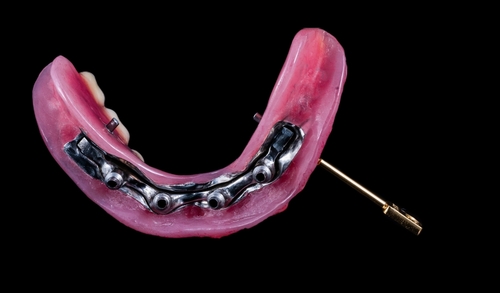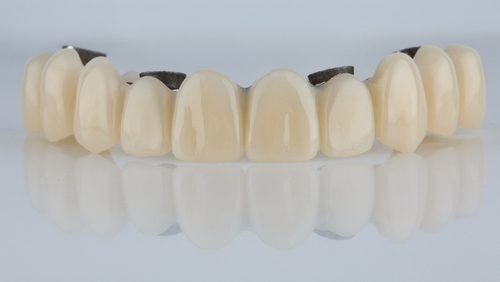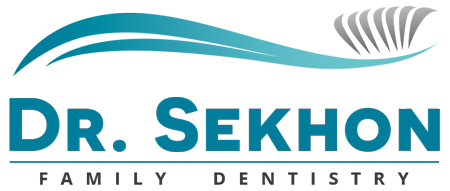The Dental Implant Recovery Process
A common and efficient method for replacing missing teeth is dental implant surgery. However, the recovery period following implant surgery is essential for the procedure’s long-term success. Post-operative care can help the surgical site heal, reduce the risk of complications, and reduce discomfort.
Hence, the team at Sekhon Dental would like you to know about the dental implant recovery process.
Endosteal Implants
These implants, the most common kind, are used to replace one or more missing teeth. They consist of a screw-shaped post surgically placed into the jawbone, where it fuses with bone tissue over time. Once the implant fuses with the bone, a crown, bridge, or denture can be attached to the post.
It is common for endosteal implants to cause some soreness and edema during the healing process. Dental implant recovery in this situation requires patients to stick to a soft food diet and avoid strenuous activity for a few days. Over-the-counter pain medications can help manage pain or discomfort.
All-On-4 Implants

This is a sort of full-curve dental embed framework that considers the situation of a full arrangement of substitution teeth on only four inserts. Because the implants are positioned at an angle, they are more stable and do not require bone grafting.
The recovery process for All-on-4 implants is similar to that of traditional implants; however, in the initial few weeks following surgery, patients may need to exercise and eat more carefully. Patients may be required to adhere to a soft food diet for several weeks until the implants have fully integrated with the bone tissue. However, the temporary replacement teeth may be placed immediately following surgery.
Subperiosteal Implants
These implants are inserted below the gum line but on top of the jawbone. A metal frame with posts that extend into the gums is attached to the jawbone. Most of the time, patients who don’t have enough bone density or strength to support traditional endosteal implants use subperiosteal implants.
Endosteal implants and subperiosteal implants share a similar recovery process. A soft food diet and avoiding strenuous activity for a few days are recommended for patients who experience some discomfort and swelling.
Zygomatic Implants
Instead of the jawbone, these implants are anchored in the zygoma or cheekbone. Patients with severe jawbone loss who are not candidates for conventional implants typically benefit from zygomatic implants.
Because they are anchored in the cheekbone rather than the jawbone, the dental implant recovery process for zygomatic implants can be more involved than that of other types of implants. Patients may need to adhere to a liquid or soft food diet for a few days as they may experience more discomfort and swelling than with other implant types. Antibiotics and painkillers may be prescribed to alleviate pain and prevent infection.
Mini Implants
These implants are often used to support dentures or other removable dental prostheses because they are smaller than traditional implants. They can be placed in a single appointment and typically cost less than traditional implants.
Because they are smaller and require less surgery, the dental implant recovery period for mini implants is typically less than for traditional implants. Similar to endosteal implants and subperiosteal implants, avoiding a soft food diet and strenuous activity for a few days is the recommended course of action in the event of pain and inflammation.
Immediate Load Implants
 These implants, which are also referred to as “same-day implants,” are inserted and immediately loaded with a temporary tooth or bridge, resulting in shorter treatment times. Patients who do not require bone grafting and have a high bone density typically benefit from them.
These implants, which are also referred to as “same-day implants,” are inserted and immediately loaded with a temporary tooth or bridge, resulting in shorter treatment times. Patients who do not require bone grafting and have a high bone density typically benefit from them.
The dental implant recovery process for immediate load implants is also similar to that of traditional implants; however, in the first few weeks following surgery, patients may need to be more careful about their diet and activity level. Patients may be required to adhere to a soft food diet for several weeks until the implants have fully integrated with the bone tissue. However, the temporary replacement teeth may be placed immediately following surgery.
Sekhon Dental – General, Cosmetic and Restorative Dentistry
Patients must prepare for a variety of experiences during the dental implant recovery period due to the different types of implants available. Even though the recovery process for different kinds of implants can be different, following the post-operative instructions carefully and maintaining good oral hygiene can help you get back to normal as soon as possible.
Please contact us if you need dental implants or any other kind of dental work. Sekhon Dental works hard to give you the best dental care possible so that you can keep your smile healthy for a long time! Our dentist, Dr. Navjot Sekhon, DDS, has more than eight years of experience and continues to acquire new skills daily because oral health care is always evolving and changing in tandem with technological advancements. You will get the best dental care possible thanks to our talented staff and cutting-edge equipment. Dr. Sekhon is committed to assisting patients in achieving optimal oral health and recommending treatment options to resuscitate both their dental health and lives.
